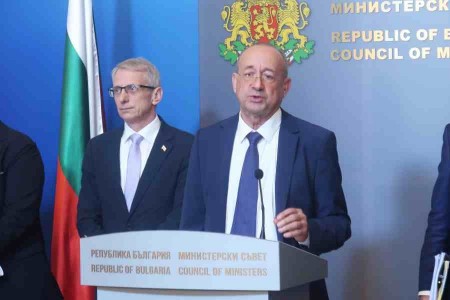The Government and the AOBE will come together with alternative employment programs upon mine closures
Representatives of the members of the Association of the Organisations of Bulgarian Employers (AOBE) – BCCI, BIA, KRIB, BICA, held a meeting with the Prime Minister Academician Nikolay Denkov, the Minister of Energy Rumen Radev and representatives of the government.
The discussion was focused on topics related to the protests of workers in the energy sector:
- optimization of the tripartite dialogue
- state of human resources in the country
- energy and resource security.
From the perspective of employers, the energy sector should be placed in the context of the whole economy and stakeholders should take the long view, because there are other challenges as well, Bulgarian Chamber of Commerce and Industry President Tsvetan Simeonov said at a briefing in the Council of Ministers building on 4 October, emerging from Prime Minister Nikolay Denkov's meeting with employer organizations.
Simeonov said the talks proceeded in a constructive atmosphere. According to him, the conclusions in the agreement which the incumbents and the trade unions signed on Tuesday amid ongoing protests of coal miners and energy workers are largely acceptable. "Let me mention some of them: National Assembly decisions must be fulfilled; efforts should be made to intensify the dialogue; and there should be far greater transparency and predictability about the plans [for the coal regions]," he added.
Simeonov complained of what he described as "the slow pace" of amending the laws to facilitate the import of labour. Foreign workers are not usually paid very high wages, in contrast with an estimated 12,000 Bulgarian workers who will be directly affected by the planned changes in the coal mining and energy sectors and will lose their relatively large incomes. He proposed incentives for employers who have already hired workers in these sectors. "Their high wages do not always correspond to the intensity of their work, but it is important for the transition to begin now and to encourage the employment of the workers [after they are made redundant]. It is also very important to provide retraining for occupations which have a future." Simeonov noted that the solar power industry, for example, needs 2,000 more employees. "There are opportunities for training and even work abroad. They will probably be able to earn even higher wages than they do at present in the thermal power plants."

